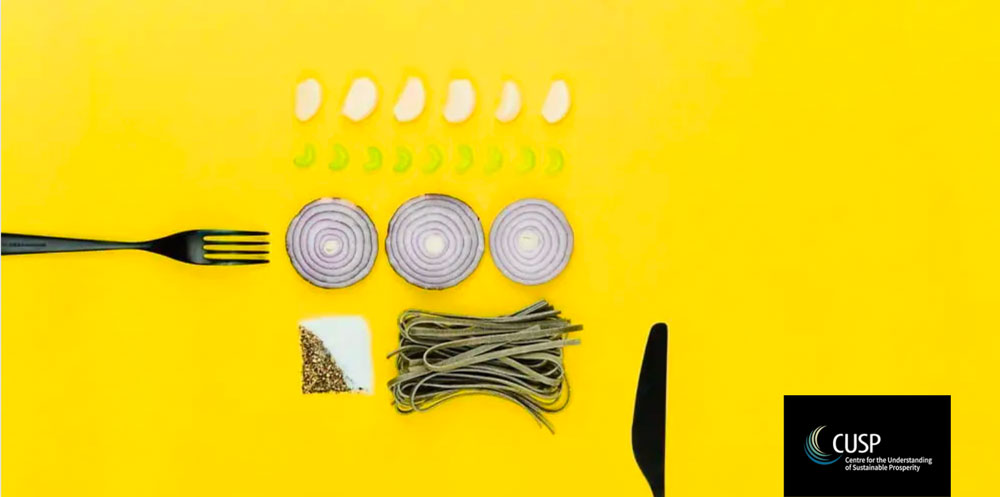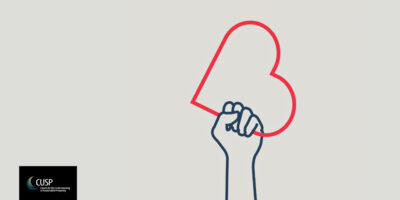Trusting sustainable food production
In a transition to a more sustainable future, we need to dramatically change how we produce and source food. Globalisation of food supply has led many to question if the current patterns are ecologically or socially sustainable. The emergence of alternative forms of sustainable food production contributes to an increasing variety in production means and quality of food, which in turn create a demand for systems of trust to guide consumers in sourcing food that is both healthy and sustainably produced. This is the focus of a new chapter by Lovisa Näslund and Fergus Lyon in the recently published Routledge Companion to Trust.

Food scares, such as the horsemeat and adulterated milk powder scandals, highlighted how unequipped we are to discern the quality of the food we buy. As a result, regulations have increasingly been put in place, trying to ensure high standards of quality and a high degree of traceability. We have also seen the rise of supranational solutions, such as third-party quality assurance systems and international standards that often form part of trade agreements. In addition, producers and consumers have developed a range of alternative food supplies– set out to provide both quality food and sustainable food production systems. Consumers, however, still have difficulties assessing these qualities in a product while shopping. Trust is therefore a key issue in feeding the world.
Trust and the ‘paradox of progress’
Trust can be defined as accepting vulnerability with positive expectations of the intentions of others. In the case of sustainability in food, this vulnerability is found in terms of the health of the consumer but also the hazards arising from the production process. The consumer is basically being asked to accept vulnerability both for themselves and the wider environment, often thousands of miles away from where they may be eating.
So how can consumers rightfully trust the sustainability of the products they are buying? Environmental legislation and regulations have to some extent helped rising food standards, but have also led to what is sometimes called the “paradox of progress”: As food sourcing chains become more complex, greater regulations, standards and monitoring are required; the raised standards and increased monitoring in turn lead to more food scares, as deviations are more likely to be discovered, which results in greater levels of distrust in food systems. This leads to greater demand for guardians of trust who can reduce the vulnerability felt by consumers.
Guarding trust
The quality assurance systems, set out to help us navigate the consumption choices, also increase our perceived vulnerability: failures are increasingly discovered, and thus such systems, once in place, increase public demand for the trust they provide.
There are three main ways to create this trust: Firstly, we can seek interpersonal trust, for example buying directly from a producer. This is often practiced in rural areas around the world where there is little trade, but we also find it with farmer’s markets and direct online sales in developed countries. These markets are alternative food spaces where quality is assured through knowing the producer. However, even in these markets there is a certain leap of faith concerning the production practices of the farmer. Furthermore, these markets are of limited scale and, in the case of farmer’s markets, tend to be focused on more affluent consumers.
Another possibility is to seek trust through intermediaries who source the food from farmers and other producers and sell it to consumers. This way, the trust is put into the intermediary trader, vouching personally for the trustworthiness of the producer and the quality of the food. This form of trusted trading relationship is a dominant form of trade across the South and developing countries. It is also found in alternative food systems where businesses, such as Riverford Organic, buy from organic farmers and deliver food to distant consumers.
A third form of trust goes beyond the personal and potentially allows sustainable food production to be scaled up, particularly though supermarkets which dominate the food supply in much of the North. Trust in this environment is put into systems, in government regulation or product brands and supermarkets themselves. In such an impersonal system trust, there is no actual expectation of reciprocity or benevolence, as would be required to create interpersonal trust, but the trust is instead based on an assessment that the rules and criteria of the system have been designed competently and fairly, and that the system follows these rules.
With a small but growing interest in sustainable food production, we can see a mix of these different approaches. Supermarkets are stocking products that use their branding to ‘tell a story’ of sustainability. Creating and using trustworthy signals and cues in their labelling and branding, producers seek ways to inform the buyer of their production ethics. Examples are kite marks to demonstrate credentials for organic food, fair trade produce, or food produced with a focus on supporting wildlife and good environmental practices.
Systems of trust
Third party certification has become a vital form of trust building for both producers and retailers of food, and the independence and competence of these certification bodies are ever more important.
For a thriving sustainable food production, the relationship between producer and auditor needs to be based on mutual trust: it needs to allow for innovation from food producers on the one hand, and ensuring willingness to comply with high quality standards on the other.
It is fast pacing times for businesses and consumers alike: urbanisation progresses rapidly across the world and food chains become longer. Not everybody can afford the choice of where to buy their food; establishing a proper infrastructure is one of the things that needs addressing. In order to allow healthy and sustainable food production to actually reach the consumer, we need to focus on both a localisation of food production, but also the indispensable systems of trust — systems that encourage consumers to purchase the sustainable foods that are available.
This article draws on a chapter by Lovisa Näslund and Fergus Lyon on Trust in Food: Assuring quality, sustainability, price and availability, in Rosalind Searle, AnnMarie Nienaber and Sim Sitkin, (Eds) (2018) The Routledge Companion to Trust, Routledge.



